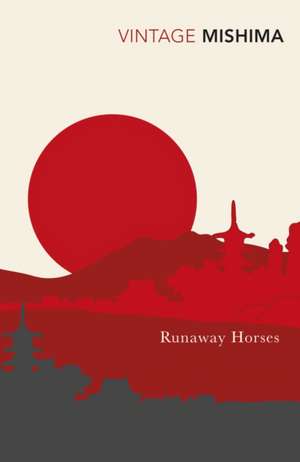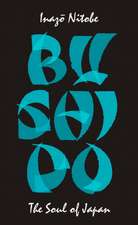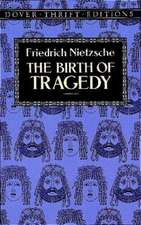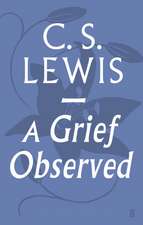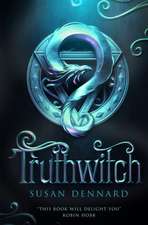Runaway Horses
Autor Yukio Mishimaen Limba Engleză Paperback – 11 mar 1999
| Toate formatele și edițiile | Preț | Express |
|---|---|---|
| Paperback (2) | 64.40 lei 3-5 săpt. | +12.37 lei 7-13 zile |
| Vintage Publishing – 11 mar 1999 | 64.40 lei 3-5 săpt. | +12.37 lei 7-13 zile |
| Vintage Publishing – 31 mar 1990 | 95.10 lei 3-5 săpt. |
Preț: 64.40 lei
Nou
Puncte Express: 97
Preț estimativ în valută:
12.32€ • 12.84$ • 10.20£
12.32€ • 12.84$ • 10.20£
Carte disponibilă
Livrare economică 13-27 martie
Livrare express 27 februarie-05 martie pentru 22.36 lei
Preluare comenzi: 021 569.72.76
Specificații
ISBN-13: 9780099282891
ISBN-10: 0099282895
Pagini: 432
Dimensiuni: 128 x 198 x 32 mm
Greutate: 0.3 kg
Ediția:New edition.
Editura: Vintage Publishing
Locul publicării:United Kingdom
ISBN-10: 0099282895
Pagini: 432
Dimensiuni: 128 x 198 x 32 mm
Greutate: 0.3 kg
Ediția:New edition.
Editura: Vintage Publishing
Locul publicării:United Kingdom
Notă biografică
Yukio Mishima was born in Tokyo in 1925. He graduated from Tokyo Imperial University’s School of Jurisprudence in 1947. His first published book, The Forest in Full Bloom, appeared in 1944 and he established himself as a major author with Confessions of a Mask (1949). From then until his death he continued to publish novels, short stories, and plays each year. His crowning achievement, The Sea of Fertility tetralogy—which contains the novels Spring Snow (1969), Runaway Horses (1969), The Temple of Dawn (1970), and The Decay of the Angel (1971)—is considered one of the definitive works of twentieth century Japanese fiction. In 1970, at the age of 45 and the day after completing the last novel in the Fertility series, Mishima committed seppuku (ritual suicide)—a spectacular death that attracted worldwide attention.
Recenzii
“A modern masterpiece.”
—The Baltimore Sun
“Mishima is like Stendhal in his precise psychological analyses, like Dostoevsky in his explorations of darkly destructive personalities.”
—Christian Science Monitor
—The Baltimore Sun
“Mishima is like Stendhal in his precise psychological analyses, like Dostoevsky in his explorations of darkly destructive personalities.”
—Christian Science Monitor
